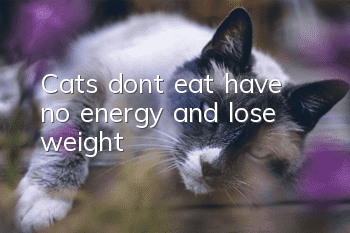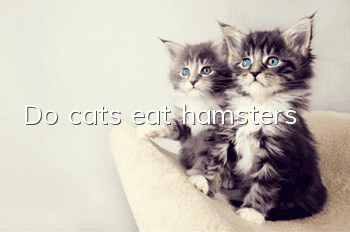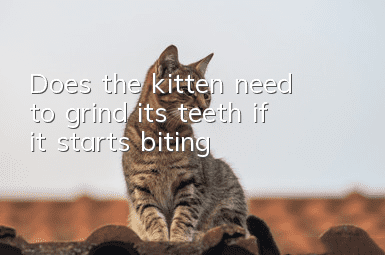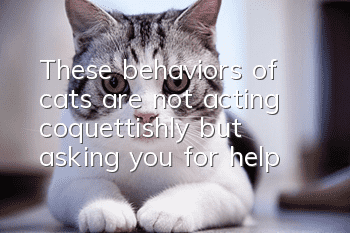Cats don’t eat, have no energy and lose weight

Cats that don’t eat, lose energy, and lose weight may be caused by hairball disease, parasitic infection, gastroenteritis, cat plague, etc. If you want to know the specific reason, you still need to find out through clinical examination. Therefore, when the cat appears in this situation, the owner needs to investigate whether the cat has other abnormal conditions, and then send the cat to the pet hospital for treatment in a timely manner. Check and treat. In daily breeding management, owners should also take their cats for vaccination and deworming in a timely manner.
1. Gastroenteritis
If your cat usually overeats, is hungry for a long time, or eats expired spoiled food, it will easily cause gastroenteritis, followed by symptoms such as depression, decreased appetite, soft stools, diarrhea, vomiting, and in severe cases, The presence of blood in the stool will cause the cat to lose weight over time. In terms of treatment, anti-inflammatory and anti-diarrheal drugs can be used, and specific treatment can be based on the cause.
2. Cat plague
If the cat is young and has not been vaccinated, it may be infected with feline distemper virus. Feline distemper is a severe infectious disease in cats. After being infected with feline distemper, cats usually develop symptoms such as depression, loss of appetite, lethargy, fever, vomiting, and diarrhea. If a cat is found to have the above symptoms, it is recommended that the owner test the cat for feline distemper virus. If the cat is diagnosed with feline distemper, timely infusion treatment is required.
3. Parasitic infection
If the cat has not been dewormed for a long time, parasitic infection will also cause the cat to lose appetite, have no energy, and lose weight. In this regard, the owner can check the cat's feces. If parasites are found, the cat needs to be dewormed in time.
4. Hairball syndrome
Cats are very clean animals, so they usually lick their fur to clean their bodies, and then lick the fur into their stomachs. When a lot of hair accumulates in the gastrointestinal tract and the pet owner does not feed the cat hair removal cream, the cat will feel uncomfortable and show symptoms such as depression, decreased appetite, weight loss, and continued vomiting. At this time, it is recommended that the owner feed the cat an appropriate amount of hair removal cream or cat grass to help the cat expel the hair balls from the body.
- What should I do if my cat likes to scratch the sofa?
- British shorthair cat feeding requirements
- Why does a cat lick its body like crazy?
- Will cats lose weight if their teeth are unhealthy? The reason why pet cats are getting thinner and thinner!
- What do kittens like to do in the sun during the day?
- Why does a cat pant so quickly?
- Do all cat lovers know these diseases about cats?
- What foods are suitable for point color short hair cats?
- How to solve the problem of cats "peeing" in spring
- How to clean a cat? What should you pay attention to when cleaning your cat?



